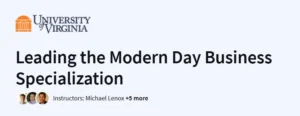What you will learn in Introduction to Financial Accounting Course
- Financial Statements: Understand the structure and components of the balance sheet, income statement, and cash flow statement.
- Accounting Principles: Learn the fundamental principles of accounting, including accrual accounting and the matching principle.
- Financial Analysis: Develop skills to analyze and interpret financial statements to assess the financial health of a company.
- Accounting for Business Transactions: Gain knowledge on how business transactions are recorded and their impact on financial statements.
- Ethical Considerations in Accounting: Understand the ethical issues and responsibilities in financial reporting and accounting practices.
Program Overview
Introduction to Financial Accounting
⏳ 2 hours
Overview of financial accounting and its importance in business.
Introduction to the basic accounting equation: Assets = Liabilities + Equity.
The Balance Sheet
⏳ 3 hours
Detailed examination of the balance sheet and its components.
Understanding how to read and interpret a balance sheet.
The Income Statement
⏳ 3 hours
Exploration of the income statement and its role in financial reporting.
Learning how to analyze revenues, expenses, and profits.
The Cash Flow Statement
⏳ 3 hours
Understanding the cash flow statement and its components.
Learning how to assess a company’s cash inflows and outflows.
Accounting for Business Transactions
⏳ 4 hours
Detailed study of how business transactions are recorded.
Understanding the impact of transactions on financial statements.
Ethical Considerations in Accounting
⏳ 2 hours
Discussion of ethical issues in financial reporting.
Understanding the responsibilities of accountants and financial managers.
Get certificate
Job Outlook
- Proficiency in financial accounting is valuable for roles such as Financial Analyst, Accountant, Auditor, and Controller.
- Skills acquired in this course are applicable across various industries, including finance, healthcare, manufacturing, and consulting.
- Completing this course can enhance your qualifications for positions that require a strong understanding of financial statements and accounting principles.
Specification: Introduction to Financial Accounting Course
|
FAQs
- Covers accounting principles and concepts
- Teaches how to prepare financial statements
- Explains the role of accounting in decision-making
- Provides real-world business applications
- Business and finance students
- Entrepreneurs and small business owners
- Professionals looking to upskill
- Beginners curious about accounting
- Transaction analysis and journal entries
- Preparation of income statements and balance sheets
- Understanding assets, liabilities, and equity
- Interpreting financial data
- Beginner-friendly structure
- Starts from accounting basics
- Includes guided examples
- Builds progressively to complex topics
- Strengthens foundation in finance
- Useful for roles in accounting and business
- Supports career advancement in management
- Enhances financial literacy for personal use





